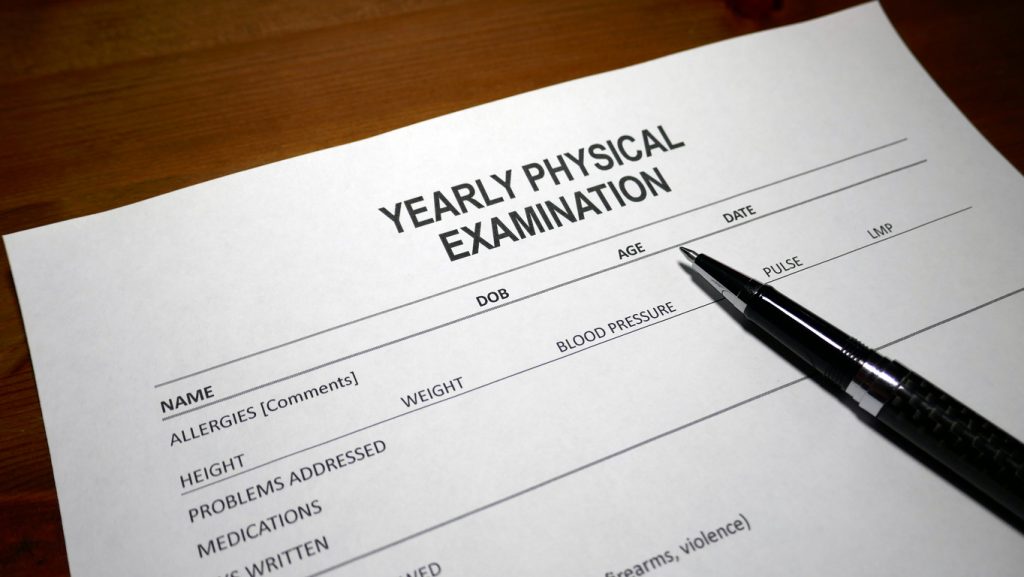Have you ever heard the phrase, “An ounce of prevention is worth a pound of cure”? Well, it couldn’t be more true when it comes to your health. Annual preventive examinations aren’t just another appointment to tick off your calendar — they’re a cornerstone of staying healthy. These visits help catch potential issues before they become major problems, ensuring you stay on top of your game. Let’s dive into why your annual preventive examination is a must-visit for your health.
What Is an Annual Preventive Examination?
An annual preventive examination is a yearly health check-up focused on maintaining your overall well-being. It’s not about addressing existing issues but identifying risks and preventing future health complications. Think of it as your yearly health tune-up.
Key Components of a Preventive Exam
- Health History Review: Your doctor reviews your medical history, lifestyle, and family health patterns.
- Physical Examination: From head to toe, your doctor checks for any abnormalities.
- Screening Tests: These may include blood pressure checks, cholesterol levels, and other routine screenings tailored to your age and gender.
- Vaccinations: Staying up-to-date on immunizations is vital for preventing diseases.
- Lifestyle Counseling: Tips on diet, exercise, and stress management are often part of the visit.
Why You Should Never Skip Your Annual Exam
Wouldn’t you rather catch a problem when it’s small and manageable? Many conditions like hypertension, diabetes, and even cancer can go unnoticed without symptoms. Regular check-ups help spot these silent threats early.
Personalized Health Advice
Your doctor’s advice isn’t one-size-fits-all. Annual exams provide an opportunity for tailored recommendations based on your unique health profile.
Building a Trusting Relationship with Your Doctor
Think of your doctor as your health ally. Regular visits strengthen that bond, making it easier to discuss concerns and get better care.
The Top Benefits of Preventive Exams
Prevent Chronic Diseases
Annual exams can help you avoid long-term illnesses like heart disease or diabetes by identifying risk factors early and recommending actionable steps.
Stay Current on Vaccinations
Vaccines aren’t just for kids. Adults need them too, especially for flu, shingles, and pneumonia. These visits keep you protected.
Gain Peace of Mind
Knowing you’re in good health reduces stress. Who doesn’t want to sleep better at night?
What to Expect During Your Visit
H2: The Pre-Appointment Prep
Bring a list of medications, your health history, and any questions you might have. Think of it as coming to class prepared — your health deserves it!
The Check-Up Process
- Vitals Check: Blood pressure, pulse, and temperature.
- Physical Exam: A full-body review to ensure everything’s in working order.
- Screenings: Based on age, gender, and family history, your doctor may recommend specific tests.
- Lifestyle Talk: Discussing diet, exercise, sleep, and stress levels.
Post-Appointment Follow-Up
You might get test results or action steps after your visit. Don’t ignore these — they’re your roadmap to better health.
Common Myths About Annual Preventive Exams
“I’m Healthy, So I Don’t Need One”
Even if you feel great, many health issues develop silently. Regular exams are about staying ahead of problems.
“They’re Too Expensive”
Most insurance plans cover preventive exams at no extra cost. Plus, they’re cheaper than dealing with a major health issue later.
“I Don’t Have Time”
Your health should be a priority. It’s better to spend an hour now than weeks recovering from an illness later.
Tailoring Exams to Different Life Stages
Exams in Your 20s and 30s
These years are about setting a strong health foundation. Key focus areas include mental health, reproductive health, and early screenings for hereditary conditions.
Exams in Your 40s and 50s
As you age, screenings for chronic conditions like diabetes and heart disease become essential. This is also the time to start cancer screenings, such as mammograms or colonoscopies.
Exams in Your 60s and Beyond
Older adults need to focus on bone health, cognitive health, and vaccinations like shingles and pneumonia. Regular exams help maintain quality of life.
Making the Most of Your Visit
Be Honest
Your doctor can’t help if you’re not open about your habits and symptoms. Share the good, the bad, and the ugly.
Ask Questions
Not sure why a test is needed or what your results mean? Speak up. Knowledge is power.
Follow Recommendations
What’s the point of going if you’re not going to act on the advice? Commit to making changes.
Preventive Exams and Mental Health
The Connection Between Physical and Mental Health
Your body and mind are a team. Annual check-ups often include mental health screenings, ensuring you’re healthy inside and out.
Reducing Stress Through Regular Check-Ups
Worried about what could be wrong? Annual exams eliminate the guessing game, reducing anxiety about your health.
How Technology Enhances Preventive Care
Digital Health Records
With electronic records, your doctor can easily track your health history, ensuring nothing slips through the cracks.
Health Apps and Wearables
Smartwatches and apps can monitor your vitals, activity, and sleep, providing valuable data for your check-ups.
Telemedicine Options
Too busy to visit? Some preventive care can now be done virtually, making it even more accessible.
Overcoming Barriers to Preventive Care
Financial Concerns
If cost is an issue, check with your insurance provider or local clinics for affordable options. Many communities offer free or low-cost exams.
Fear of Bad News
Avoiding the doctor because you’re scared of what they might find? Remember, knowledge is the first step to action.
Lack of Time
Block off your calendar. Treat it like an important meeting because, honestly, it is.

Conclusion: Your Health Deserves It
Taking the time for an annual preventive examination is one of the best investments you can make in yourself. It’s about staying ahead of health issues, gaining peace of mind, and living your best life. Don’t wait for a wake-up call to prioritize your health. Schedule your preventive exam today — your future self will thank you.
At New Mexico Medicare Plan Advisor, we’re here to help you navigate your health plan options. Our knowledgeable agents can guide you in finding the perfect plan tailored to your needs. Have questions? Contact us today and get the support you need to make informed choices about your health.
FAQs
Q1: How often should I get a preventive exam?
Most experts recommend an annual check-up, but the frequency can vary based on your health and risk factors.
Q2: What should I bring to my preventive exam?
Bring your medical history, a list of medications, and any questions or concerns you want to discuss.
Q3: Are preventive exams covered by insurance?
Yes, most insurance plans cover annual preventive exams as part of their benefits.
Q4: Can I skip screenings if I feel healthy?
No. Many conditions are silent in their early stages, so screenings are crucial regardless of how you feel.
Q5: What happens if something abnormal is found?
Your doctor will discuss next steps, which may include additional tests or a referral to a specialist.



